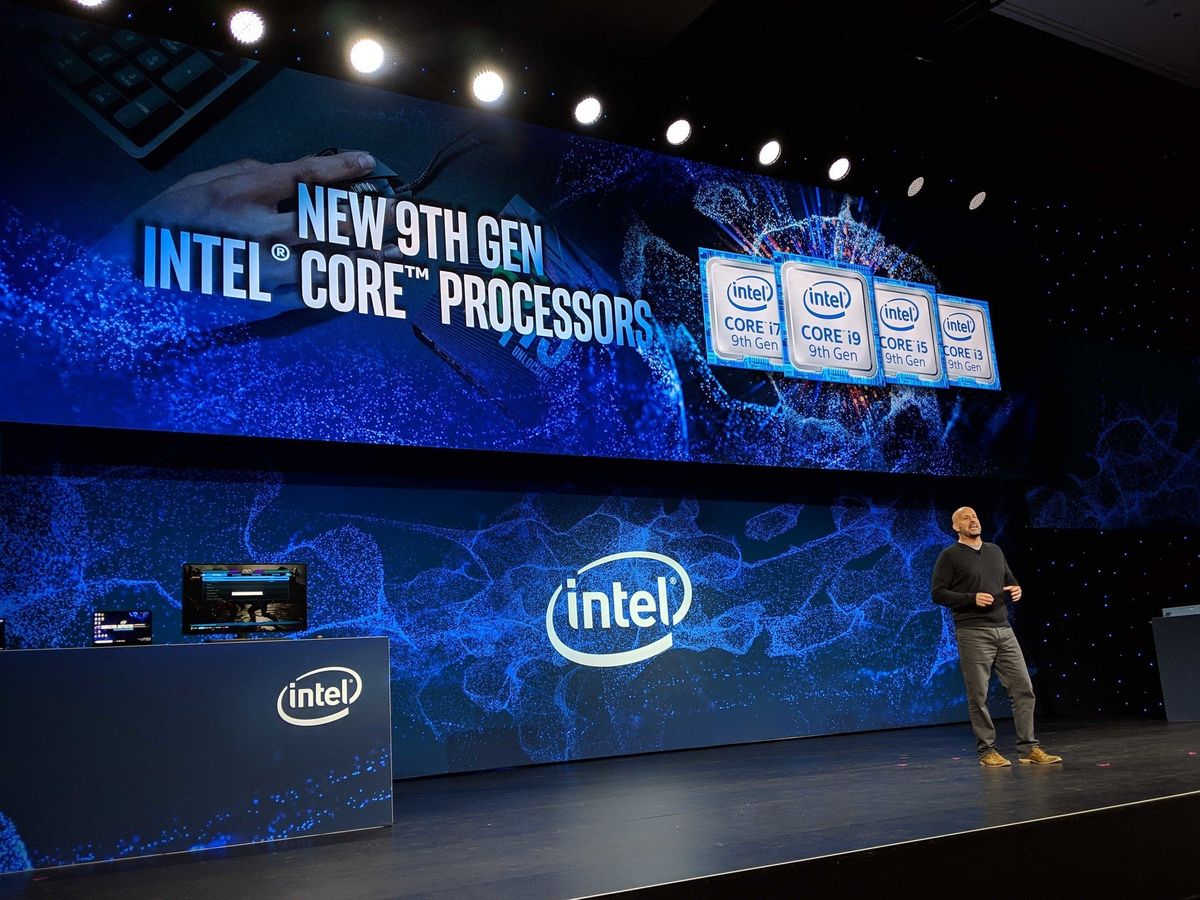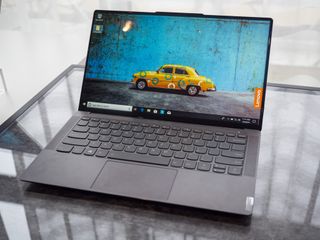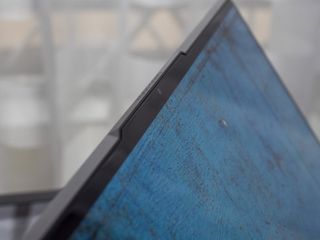Biggest laptop and PC trends from CES 2019
Pushing single announcements aside, here's the big news for laptops in 2019 that you may have missed.

Now that the Consumer Electronics Show (CES) for 2019 is wrapped up, we can summarize some general themes and best-ofs for the event.
One thing is clear: PCs and laptops are back. I've been attending CES almost every year since 2011, and this year we saw more computers featured than any other year. That change is likely due to NVIDIA's big laptop announcement with its RTX series of graphics cards launching in 40 laptops.
The other shift in tech is the decline of smartphone announcements. Many of the big companies like Samsung – and even smaller ones like Razer or OnePlus – opt for separate events to launch their new products. But even with all that, it's hard to ignore the sheer dearth of new news around smartphones, as that category hits maturity.
Here are some broad-stroke trends I noticed this year at CES 2019, pertaining to laptops.
What CES PC trends suggest for 2019

The return of 17-inch laptops
As the industry went super thin and light, 17-inch laptops fell out of favor with consumers. But with newer technology – and super thin bezels – the mammoth laptops are back – and they're just the size of 15.6-inch laptops now. ASUS and LG (LG gram 17) both had 17-inch productivity-based laptops at CES, and my hunch is we'll see even more in the coming months.
Thin bezels are here
Like smartphones, laptops are starting to demand super thin display bezels. Dell started the craze with the XPS 13 (and later Huawei followed up), but every PC manufacturer is now in on the technology. MSI, Acer, ASUS, LG, Dell, Lenovo, HP, and even Razer all incorporated micro-bezels into their screens.
'Reverse' notch
To fit a web camera and Windows Hello into the top bezel, Lenovo and ASUS both showed displays with a "reverse" notch that protrudes outwardly from the top of the screen. Interestingly, the change now also gives users a lip to open the laptop's lid, effectively solving two problems.
Get the Windows Central Newsletter
All the latest news, reviews, and guides for Windows and Xbox diehards.
Dolby everywhere
Dolby is making a big push with its Dolby Vision (video) and Dolby Atmos (audio) technologies and laptops. Lenovo, Huawei, and now Dell are embracing Dolby's tech for HDR video and better spatial surround sound. It's not just a gimmick, either, as my Yoga C930 is my main laptop right now due in part to the excellent 4K display and outstanding audio. Dolby worked closely with Lenovo and Huawei on the hardware, making the "Dolby Atmos Speaker System" more than just software tricks.
16:10 aspect displays
Microsoft brought the 3:2 display aspect ratio to the market with its entire Surface line, with Huawei following. The taller screen aspect is a much better experience than the wider 16:9, which is still used in abundance. But things may be changing. Huawei's new MateBook 13 is 3:2, and new laptops from LG and ASUS embrace 16:10 (which is what Apple uses). Could we finally be witnessing the decline of wide-screen laptops?
NVIDIA RTX everywhere
NVIDIA stole CES with its RTX for laptops announcement. The new RTX 2060, 2070, and 2080 graphics cards are appearing in more than 40 laptops, many of which launch on January 29. Gaming is big and only getting bigger. NVIDIA's new cards have impressed PC manufacturers who are embracing the raytracing tech with open arms.
A few more thoughts ...

Other side observations include the continued push for the lightest (LG) and thinnest (Lenovo) laptops. The 2-in-1 category saw some new additions like LG's 14-inch gram convertible laptop, Samsung's Notebook 9 Pro, the HP Spectre 15 (now with AMOLED), improved Lenovo ThinkPad X1 Yoga, and Dell's Latitude 7400.
You may have noticed there were no Windows 10 on ARM devices announced. While that's true, the new Snapdragon 8cx is not expected until the late summer or early fall timeframe making any related device announcements a bit premature for CES.
Likewise, although Intel announced its 9th Generation Core processors, there were no devices shown off with the new 10nm chipset – at least not publicly. Behind closed doors, some companies revealed early prototype laptops due at the end of the year, and we're excited at what's coming next.
Overall, CES 2019 was an exciting time for the PC. That's a significant shift from two years ago, when I skipped the event due to the lack of laptop news and general momentum. Now, all the major players are releasing some of the best and most innovative hardware yet, and that's good news for everyone.

Daniel Rubino is the Editor-in-chief of Windows Central. He is also the head reviewer, podcast co-host, and analyst. He has been covering Microsoft since 2007 when this site was called WMExperts (and later Windows Phone Central). His interests include Windows, laptops, next-gen computing, and wearable tech. He has reviewed laptops for over 10 years and is particularly fond of 2-in-1 convertibles, Arm64 processors, new form factors, and thin-and-light PCs. Before all this tech stuff, he worked on a Ph.D. in linguistics, performed polysomnographs in NYC, and was a motion-picture operator for 17 years.